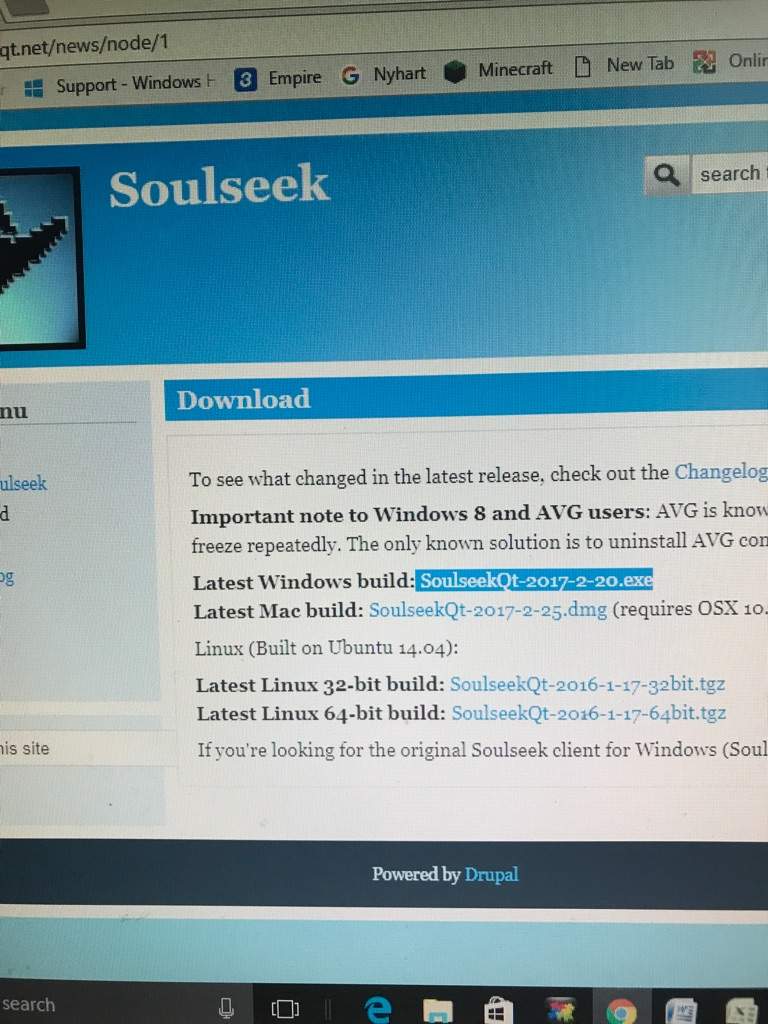

This allows users to search by folder name. For example, searching for blue suede -shoes will return a list of files whose names containing the strings blue and suede, but files containing the string shoes in their names will be excluded.Ī feature specific to the Soulseek search engine is the inclusion of the folder names and file paths in the search list.

Searches may be explicit or may use wildcards/patterns or terms to be excluded. Users can search for items the results returned being a list of files whose names match the search term used. While these central servers are key to coordinating searches and hosting chat rooms, they do not actually play a part in the transfer of files between users, which takes place directly between the users concerned. One server supports the original client and network Version 156, with the other supporting the newer network (functioning with clients 157 and Qt). Soulseek depends on a pair of central servers. The network has historically had a diverse mix of music, including underground and independent artists, unreleased music, such as demos and mixtapes, bootlegs, live tracks, and live DJ sets, but releases from major and independent labels can also be found.

New developments are solely on the SoulseekQt client interface. There are reportedly five times more users on the network accessed by clients 157/Qt than 156 as of August 2011. The older and now the less used one is accessed by Soulseek client 156 the newer network and one with greatest usage is accessed by Soulseek client 157 (Windows only) or SoulseekQt ( Microsoft Windows, macOS, or Linux platforms). Two independent networks have made up Soulseek since 2006, both run by the same management. Soulseek was created by Nir Arbel, an Israeli programmer from Safed. Soulseek is used mostly to exchange music, although users are able to share a variety of files. The term Soulseek might refer to (1) one of the two networks, or (2) one of the three official user client interfaces. Soulseek is a peer-to-peer (P2P) file-sharing network and application. Microsoft Windows, and macOS and Linux in the newest Qt clientĮnglish, Dutch, French, German, Italian, Russian, Spanish, Polish, Estonian
#SOULSEEK NS AND QT SAME USERS WINDOWS#
Browsing a share of about 450,000 files, memory consumption just for loading the share went from about 350MB to 100MB with the Windows build which is 32-bit, and roughly double those numbers with the macOS build which is 64-bit.Screenshot of the older Soulseek 157 NS 13e client version on Microsoft Windows On the memory consumption side, things are looking much better.
#SOULSEEK NS AND QT SAME USERS DOWNLOAD#
It took me a few days to get to the point where I can actually browse someone and download something from their share, but taking the data system out doesn't only reduce memory consumption, it also increases the possibility of data inconsistencies and makes bugs more likely, so bear in the mind. Fortunately, it's the easiest of the three to phase the data system out of and replace with memory-efficient standard containers (essentially a whole bunch of b-tree maps). Browsing a single user's (large) share can end up consuming hundreds of megabytes, and keeping multiple such share browse windows open can often spell trouble. And most users don't share hundreds of thousands of files, which is the point at which memory consumption becomes excessive. Search result windows are limited to 10,000 results each by default, which isn't that much data. Of those, the first one is probably that one that affects the most users.


 0 kommentar(er)
0 kommentar(er)
